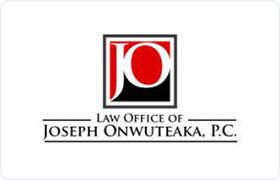Pleasant Valley Real Estate Other Lawyer, Texas
Sponsored Law Firm
-
 x
x

Click For More Info:
-
Law Office of Joseph Onwuteaka, P.C.
8323 Southwest Fwy Suite 650 Houston, TX 77074» view mapSlip & Fall Accident Fighting Fearlessly For Your Rights
I'm committed to providing experienced and tenacious legal representation. I will fight for the best possible outcome in your case & won't give up, even when things get tough.
800-960-3430
Includes: Commercial Leasing, Commercial Real Estate, Condominiums, Conveyancing, Housing & Urban Development, Premises Liability, Residential Real Estate, Title Insurance
Thomas Wyatt Key
Commercial Real Estate, Litigation, Oil & Gas, Business & Trade
Status: In Good Standing Licensed: 31 Years
David Ronald Lilley
Commercial Real Estate, Construction, Business & Trade, Business
Status: In Good Standing Licensed: 22 Years
Patricia Coleman Byars
Commercial Real Estate, Oil & Gas, Family Law, Criminal
Status: In Good Standing Licensed: 19 Years
Michael F. Payne
Commercial Real Estate, Real Estate, Family Law, Criminal
Status: In Good Standing Licensed: 46 Years
Billy T. Elder
Commercial Real Estate, Wills, Elder Law, Business & Trade
Status: In Good Standing Licensed: 52 Years
Thomas Tillman Holley
Commercial Real Estate, Oil & Gas, Business & Trade, Business
Status: In Good Standing Licensed: 13 Years
James B. Williamson
Commercial Real Estate, Oil & Gas, Business & Trade, Business
Status: In Good Standing Licensed: 48 Years
John M. Key
Commercial Real Estate, Oil & Gas, Wills, Business & Trade
Status: In Good Standing Licensed: 46 Years
 Joseph Onwuteaka Houston, TX
Joseph Onwuteaka Houston, TX Practice AreasExpertise
Practice AreasExpertise
